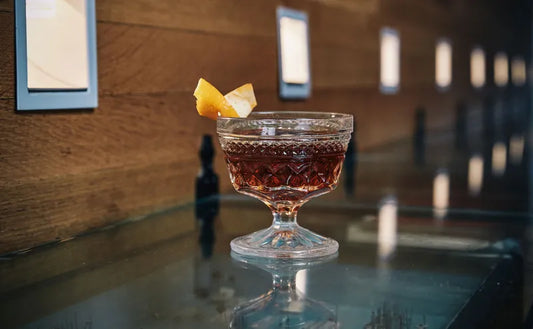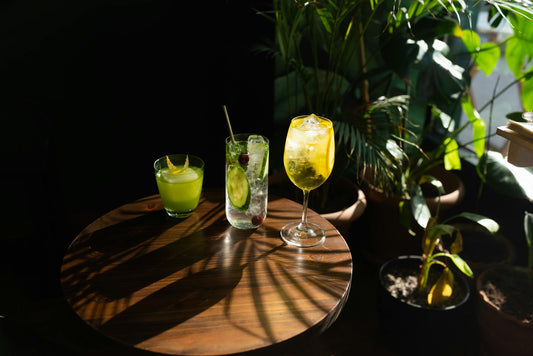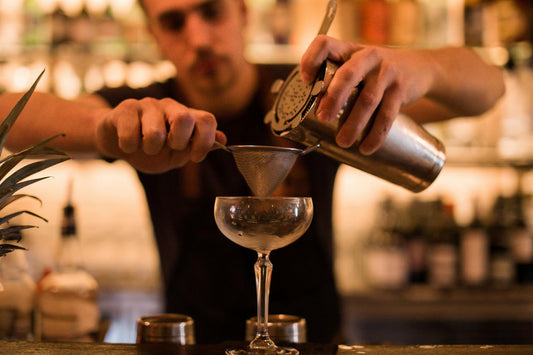Daiquiri: The Classic 6:2:1 Cocktail Recipe You Must Try!
SWEET to SOUR
(1-10)
STRENGTH
(1-10)
CALORIES
STANDARD
DRINKS
Note: these values are approximate and may vary dependent on the ingredients and brands you use.
More information...
The Daiquiri, particularly in its 6:2:1 ratio form, is a classic cocktail that embodies the essence of simplicity and balance in mixology. Originating from Cuba, this drink has a rich history that dates back to the late 19th century, and it has evolved into a staple in bars around the world. The beauty of the Daiquiri lies in its straightforward ingredients: light gold rum, freshly squeezed lime juice, and rich sugar syrup. This combination creates a refreshing and invigorating drink that is perfect for any occasion.
In crafting the perfect Daiquiri, the choice of rum is crucial. A light gold rum, aged between one to three years, is ideal as it provides a subtle complexity without overpowering the other flavors. The rum's molasses base adds a hint of sweetness that complements the tartness of the lime juice. Freshly squeezed lime juice is non-negotiable; it brings a vibrant acidity that brightens the cocktail and enhances its refreshing qualities. The sugar syrup, made with a rich 2:1 ratio of sugar to water, adds a velvety sweetness that rounds out the drink, making it smooth and enjoyable.
The preparation of the Daiquiri is an art in itself. To begin, one must select a Coupe glass and pre-chill it to ensure the cocktail remains cold and refreshing. The ingredients are then combined in a shaker with ice, and the mixture is shaken vigorously. This not only chills the drink but also dilutes it slightly, which is essential for achieving the right balance of flavors. After shaking, the cocktail is fine strained into the chilled glass, ensuring a smooth texture without any ice shards. A simple garnish of a lime wedge adds a touch of elegance and a hint of aroma that enhances the drinking experience.
With an alcohol strength of 19.61% by volume, the Daiquiri is potent yet approachable, making it a favorite among cocktail enthusiasts. It strikes a perfect balance on the scale of sweetness to dryness, landing at a 6 out of 10, which means it is pleasantly sweet without being cloying. This balance is what makes the Daiquiri so versatile; it can be enjoyed on a hot summer day or as a sophisticated choice for an evening gathering.
Nutritionally, the Daiquiri contains approximately 180 calories per serving, which is relatively moderate compared to many other cocktails. With 1.8 standard drinks worth of alcohol, it is a drink that can be savored slowly, allowing one to appreciate the intricate flavors that unfold with each sip. The addition of Difford's Daiquiri Bitters, while optional, can elevate the drink further, adding depth and complexity that can surprise the palate.
In conclusion, the Daiquiri (6:2:1 ratio) is not just a cocktail; it is a celebration of the art of mixing drinks. Its simplicity belies the skill required to perfect it, and its history adds a layer of cultural significance that enhances its enjoyment. Whether you are lounging by the beach or hosting a dinner party, the Daiquiri is a timeless choice that continues to delight and refresh, making it a true classic in the world of cocktails.



